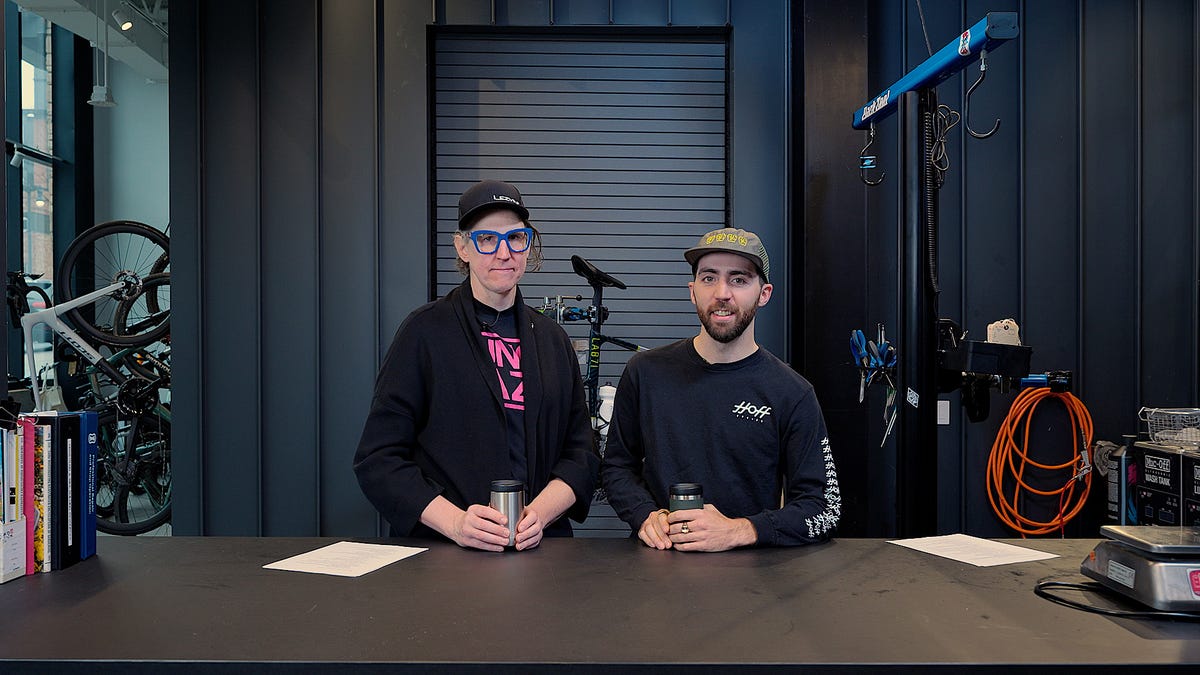This past weekend at the Paris Olympics was one for the history books. Predictions were made, favorites were favored, but no one could have guessed exactly how it all played out.
Alaskan Kristen Faulkner became the first U.S. American gold medalist in the road race in 40 years. And Belgium’s Remco Evenepoel, overcoming a challenging race and unexpected setbacks, became the first male cyclist to claim gold in both the road race and time trial in the same Olympic Games.
Remco’s Dramatic Solo Win
With a course that resembled one of a Spring Classics race, 24-year-old Evenepoel was in the top picks coming into the race. Wout van Aert (Belgium) and Mathieu van der Poel (Netherlands) were also favored, but after Evenepoel's stunning performance at last month’s Tour de France, we knew he would mean business. Still, this dominant win felt like the young Belgian got away with something more.
Throughout the race, Evenepoel didn’t seem to be closely marked by his competitors, and his counterattack following the catch of the group containing Van Aert and Van der Poel seemed to take everyone by surprise. But why?
The race didn’t seem to be in Evenepoel’s control at all from the start. Ben Healy (Ireland) launched an incredible attack with 90 km to go and just kept pounding away. We loved to see it. Healy worked with several others throughout the day and just never seemed to fade.
The race heated up when the group started the circuit in Paris. Heavy hitters Matej Mohorič (Slovenia) and Mads Pedersen (Denmark) suffered punctures, while Matteo Jorgenson (USA), Toms Skujins (Latvia), and Julian Alaphilippe (France), among others, formed a strong chase group with 40 km left.
Evenepoel, who was still back in the 40-man peloton, started putting in the work at the front. The group reduced in size, and he eventually dropped silver-medal winner Valentin Madouas (France) 15 km from the finish on the Belleville climb, with fellow Frenchman Christophe Laporte (bronze) just behind and just kept gaining time.
With less than 4 km from the line, Evenepoel stopped abruptly and jumped off his bike. He screamed for his mechanic, not knowing he was more than a minute up on the chasers. It was not a moment without drama for the young rider. He got his bike changed and charged to the line with no one else around.
In a post-race interview, Evenepoel said, “I really feel sick from the effort, particularly that stressful moment four kilometers from the line. I got a straight puncture, I had to change bikes, and the car wasn’t ready for that moment, so it was a bit stressful, but in the end, I had time enough. What a day!”
The Unexpected Greatness of Kristen Faulkner
Everything about Faulkner’s road to gold is a little nuts. The EF-Oatly-Cannondale rider grew up in Alaska but, as you might imagine, didn’t ride road bikes there. Instead, she gained enormous strength and endurance rowing crew at Harvard University.
The 31-year-old American then moved to New York City after college, where she started working for a venture capital firm. She took a beginner cycling class in Central Park and then began biking most mornings before work. That led to competing in local races around the city, where she found that she was winning more often than not. She quit her job, moved to California, and started cycling full-time—all in the last four years. She was added to the road cycling roster just one month before the Games.
Back in May, U.S. triathlete Taylor Knibb qualified for the road race after beating Faulkner by 11 seconds in the US national time trial race. This unexpectedly earned her a spot in both the road race and time trial in Paris. But Knibb decided to concentrate on the mixed triathlon, and that moved Faulkner up.
“It’s a dream come true. I had high hopes,” said Faulkner after the race. “I’m racing team pursuit in two days and said I’d only race this if I knew I could go for a medal. I knew Kopecky wanted to catch the front too. And I knew that my only chance to win would be to attack. I practiced my late attack this week.”
In the final 11 km of the race, Faulkner raced with incredible tactics against Blanca Vas (Hungary), Lotte Kopecky (Belgium), and Marianne Vos (Netherlands). In the final 2.5 km, Faulkner took off, and the others had nothing left in the tank. Faulkner’s lead went quickly from 5 seconds to 30.
Faulkner had the iconic runway all to herself, with a huge gap on the chasers behind her. Though she didn’t celebrate the same way Evenepoel did, by stopping at the finish line and hoisting the bike high in the air, she knew she had done something great. And the crowds went wild, in France and at home in the US.
















